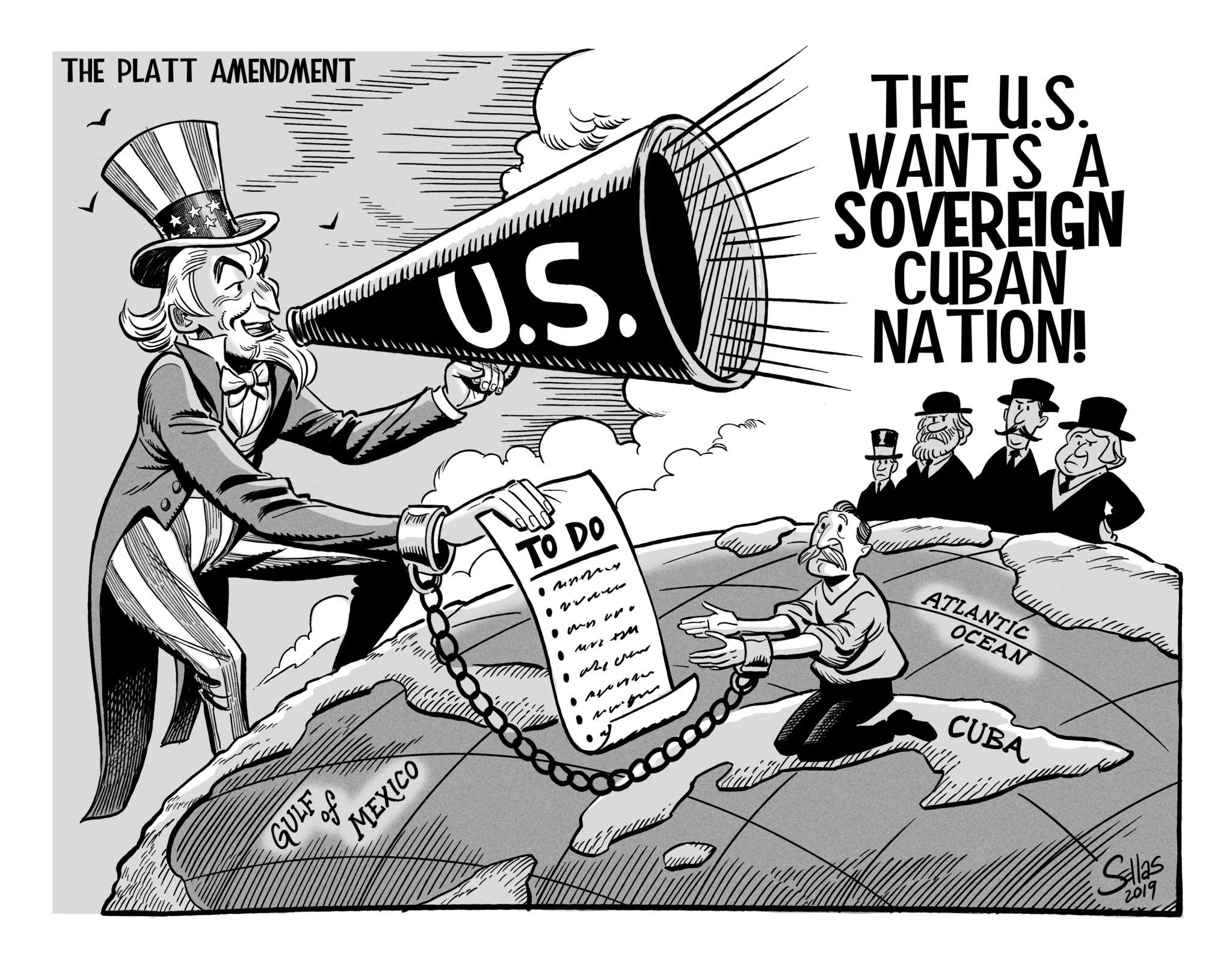On this day in 1901, under duress of occupation by the United States military, the newly independent Cuban government ratified the Platt Amendment, giving the U.S. legal control over the Cuban state and economy.
The occupying force had remained in Cuba following the conclusion of the Spanish-American War, and the U.S. government refused to withdraw occupying troops from Cuba until the seven conditions of the Platt Amendment were ratified in the new Cuban constitution.
These conditions defined the terms of Cuban-U.S. relations to be an unequal one of U.S. dominance over Cuba, both politically and economically. Among these provisions were the government of Cuba consenting to the right of the United States to "intervene for the preservation of Cuban independence, the maintenance of a government adequate for the protection of life, property, and individual liberty".
Following acceptance of the amendment, the United States ratified a tariff that gave Cuban sugar preference in the U.S. market and protection to select U.S. products in the Cuban market. Over $200 million was spent by American companies on Cuban sugar between 1903 and 1913, and this investment into sugar led to land being concentrated into the hands of the largest sugar mills, with estimates that 20% of all Cuban land was owned by these mills.
